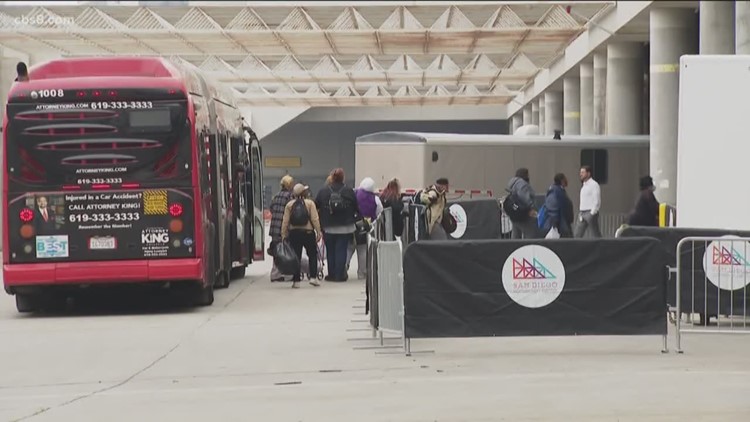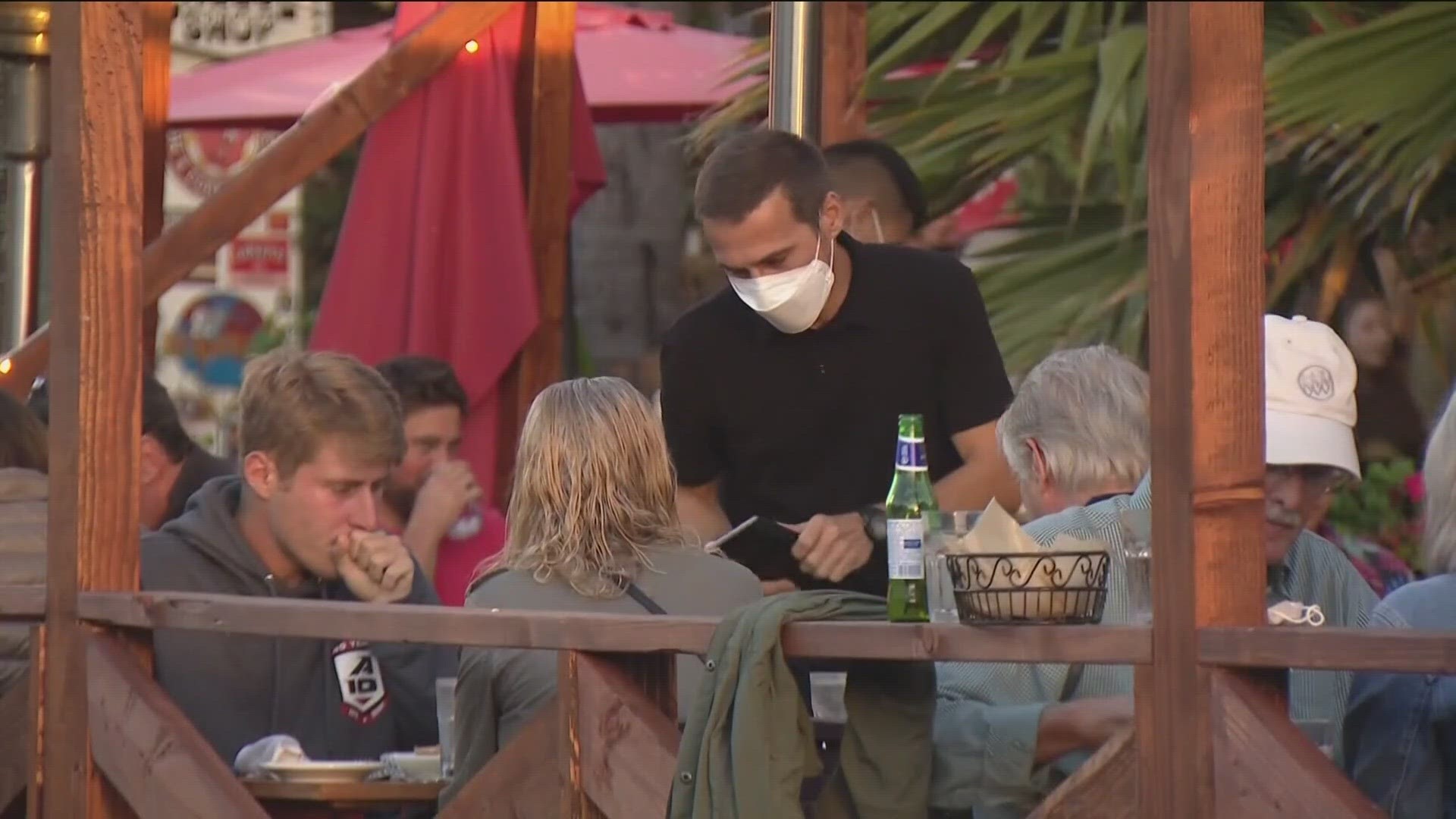SAN DIEGO — As hundreds of unsheltered San Diegans were moving into the San Diego Convention Center on Tuesday, the City Council approved a $3.7 million state emergency funding grant intended to prevent the spread of COVID- 19 among the homeless population.
Mayor Kevin Faulconer, Senate President Pro Tem Toni Atkins, Assemblyman Todd Gloria and Assemblywoman Lorena Gonzalez collaborated with the council to secure the grant, which will add to approximately $1.6 million in state-backed emergency funds from San Diego County and $1.7 million from the Regional Task Force on the Homeless for the same purpose.
This grows the total additional resources directed to "Operation Shelter to Home" at the San Diego Convention Center to $7.1 million, which is serving as a temporary regional homeless shelter.
"The convention center has undergone a remarkable transformation in just a few days, becoming an extraordinary symbol of San Diego rising to this occasion and using every resource at our disposal to fight COVID-19," Faulconer said.
By Thursday, more than 800 people experiencing homelessness will have moved into the center, which was empty just 10 days ago.
More than 200 individuals from Father Joe's Villages Paul Mirabile Center and scores more from the temporary shelter on the ground floor of Golden Hall began moving to the convention center Tuesday, freeing up space at the Mirabile shelter on Imperial Avenue.
RELATED: The power of community: San Diegans helping one another
According to the city's figures, it will pay $1.2 million per month for the 829 individuals residing in the center, but has a goal of 1,500 individuals which will result in a monthly bill of $2.8 million, $1,866 per person per month.
Those with chronic health conditions will be placed at the nearly vacated Father Joe's Paul Mirabile Center where medical support staff can assist them.
These moves help centralize services, according to Faulconer's office, and can maximize staffing. With more space than current shelter facilities, the convention center allows for physical distancing between individuals.
State lawmakers said Tuesday they hope these recent efforts will help unsheltered San Diegans escape the cycle of homelessness, even after the COVID- 19 pandemic.
Atkins, D-San Diego, called Operation Shelter to Home "more than a shelter. It's a path to resources and permanent housing."
Gloria, D-San Diego, said it would be "my fervid hope and it would be my prayer that at the backend of this crisis, not only will we have taken our homeless off the streets for the period of the emergency, but that we will find them permanent homes in this community so they will not return to our streets. I think that's a worthy goal for us to set for ourselves."
Faulconer addressed the council before the vote to emphasize the convention center is part of a coordinated regional approach to help sheltered and unsheltered individuals remain healthy during the COVID-19 crisis.
Faulconer and other public officials announced on March 23 that the center would be repurposed.
The city also reached an agreement with the county, homelessness task force and the San Diego Housing Commission detailing roles, responsibilities and financial terms for Operation Shelter to Home.
The city will act as the fiscal agent for its $3.7 million grant and will also manage funds from the county and the homelessness task force.
Eligible uses for the state funding include but are not limited to increasing shelter capacity, support for acquiring hotels and other alternative isolation placements, securing furnishings, supplies, and equipment needed to maintain a sanitary environment and distributing supplies and equipment to meet the urgent physical needs of unsheltered people and to protect staff from COVID- 19.
Case managers and other staff members will be focused on identifying the most appropriate exit strategy for shelter clients and working to attempt to end their cycle of homelessness, officials said.
Individuals are being moved in phases to ensure needs and resources are scaled appropriately, officials said.
Tuesday marked the third phase of relocations following moves over the past week from three of the city's bridge shelters operated by Alpha Project and Veterans Village of San Diego.
Once all groups are settled and physical distancing requirements have been met, capacity will be assessed to take in other unsheltered San Diegans.
Proper hygiene, sanitation and monitoring of individuals are a few of the precautionary measures being taken in an attempt to prevent the spread of illness within the temporary shelter.
Clients and staff are being screened daily by temperature check and verbal questionnaire by homeless service providers or San Diego public health nurses. They are also instructed to wash and sanitize their hands upon each re- entry into the facility.
Persons exhibiting symptoms of COVID-19 will be evaluated by a nurse or other medical personnel to see if they need to transfer to an on-site isolation area, off-site isolation or a medical treatment facility for significant severe symptoms.
"We know this crisis has put the unsheltered at special risk and it has decimated the local tourism economy," said Gonzalez, D-San Diego.
"The funding we authorized at the state level helps fight back on both these issues -- providing shelter for our most vulnerable while also putting many convention center employees back to work."



